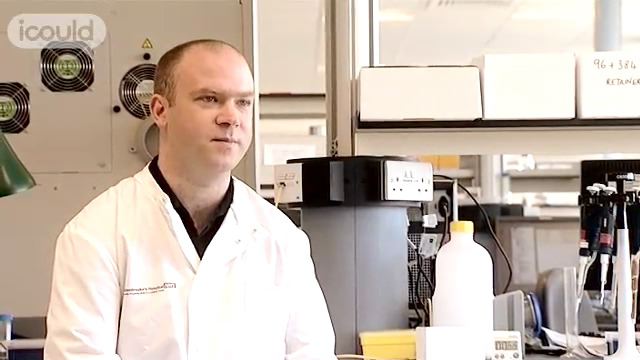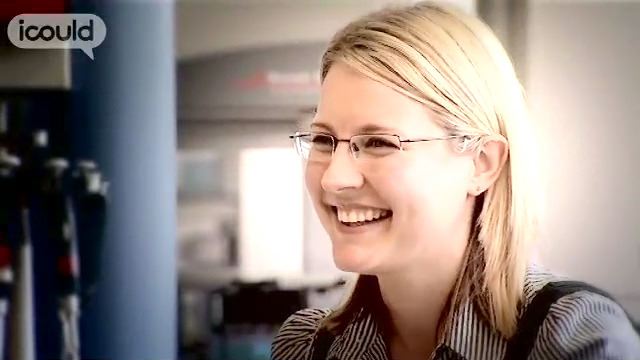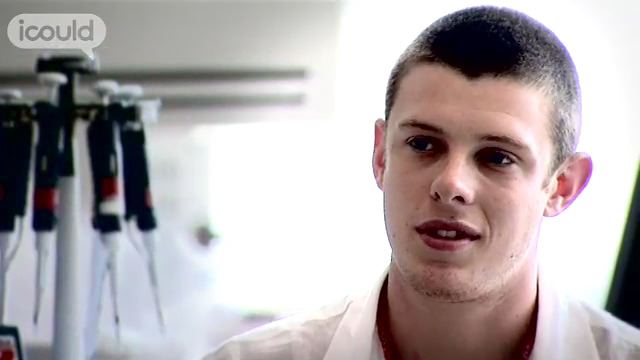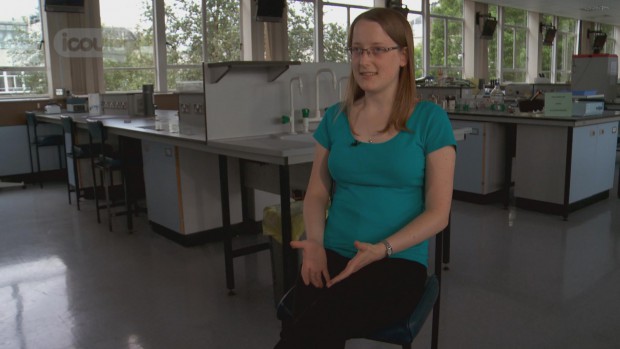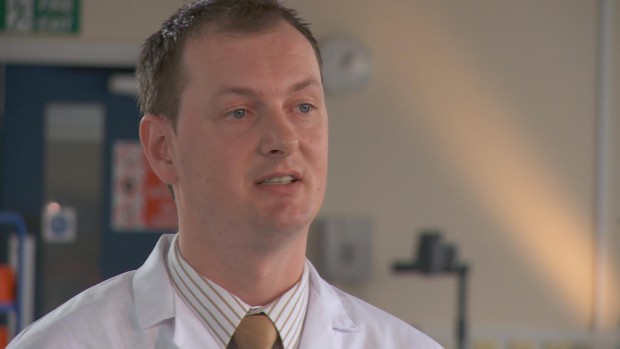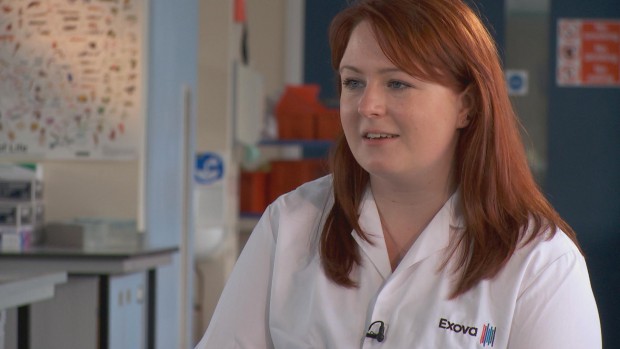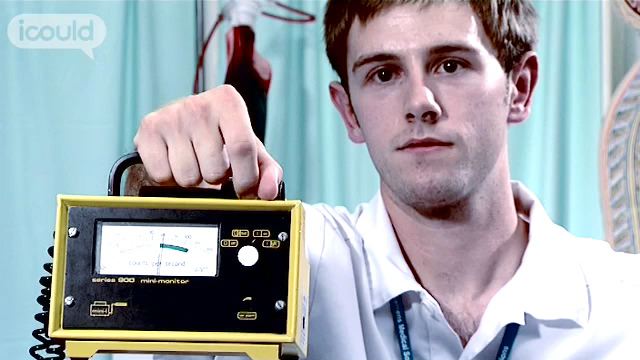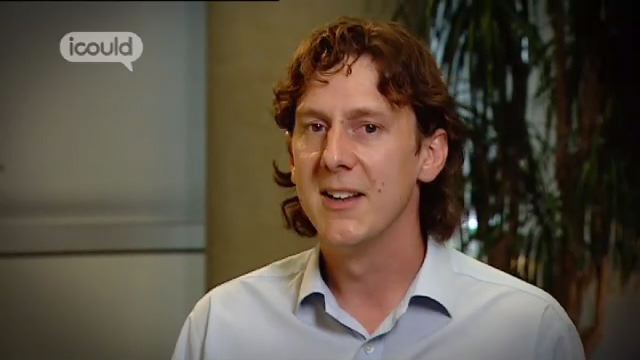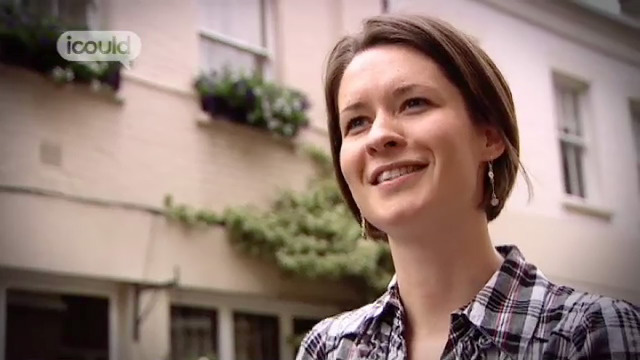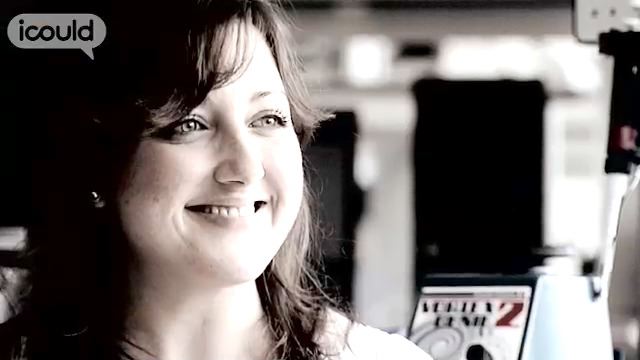Molecular Geneticist
Addenbrookes Hospital
Helen S
00:00:01 My name’s Helen and I’m a Trainee Molecular Geneticist. I work in the lab and we get samples from patients and we test the DNA to see whether or not they’re at risk of developing genetic disease. For example if two parents came in and both parents knew that they carried a gene that could lead to cystic fibrosis, we can test the unborn baby and find out whether or not that baby’s at risk of having cystic fibrosis. And only about a month ago we tested an unborn baby and found that they were just a carrier of the disease but wouldn’t be affected, so we could send that report back to the parents, and they would be assured that they were going to have a healthy child. (LAUGHS) It’s nothing like on the telly. It’s not even like Holby City.
00:00:44 I don’t think I knew until about three years ago that this is what I wanted to do. I think I can remember being about six and thinking that I wanted to be a car mechanic, but obviously that’s not what’s happened. When I was at school my biology teacher was really good, and sort of explained things really well, so I think that was why I’ve gone on to do it at college. I didn’t do anywhere near as well in my A-Levels as what I did at GCSE, kind of discovered drinking and music and social life, and didn’t really sort of put very much into college and didn’t get a lot out of it. I decided that I didn’t want to go to University. I worked at Barclays Bank for a year full time. The idea of working in a bank was like oh brilliant, you know, it sounded like a really good job. And within three months decided it wasn’t what I wanted to do, you know, look at the people that were working around me – sort of in their forties and fifties and all miserable, hated the job, on no more money than when they started, and I just knew I could do better than that. What I’m doing now is much better, maybe not much more money but I enjoy it better.
00:02:30 I applied to go to University, sort of picked a subject that I’d enjoyed at A-Level which was Biology. And for the first year at University I worked part time still at Barclays, but then found that the hours were too much and the job was too sort of stressful on top of trying to study. I didn’t really enjoy my degree very much. I think the first two years I found quite difficult because I was working part time and doing quite a lot of hours in the part time job, so I couldn’t really put very much into University, and I think that kind of set it off on a bad foot. After two years I was quite seriously thinking about dropping out, but then I thought for the sake of one more year I would get a degree out of it, so I carried on. I definitely don’t think I would be doing anything like what I’m doing now if I had dropped out, so I’m pleased that I carried on with it. I kind of decided because I did well in my degree that I was sort of capable of doing a PhD, and my tutor had sort of suggested it, and that’s the thing that I feel sort of most proud about what I’ve done. The lab that I was doing my PhD in was sort of associated with the diagnostic service, and doing the work there I found out about this job, and decided that this is what I wanted to do.
00:02:56 Well the job that I’m doing now is a training position, and it’s four years to get NHS state registered, which kind of means that I can work in any of the NHS labs. I think I would like to specialise to what I did my PhD in, so work on that genetic disease, instead of doing sort of a broad range, which is what I’m doing now. But obviously I need to be trained to do everything before – before you can specialise.
00:03:26 I think it’s good working in a sort of environment like this because it is always something new, sort of thing, indentified or discovered, so if there’s a new gene that’s associated with disease it could be a new test that we would add to the lab, and we would be able to offer more screening for patients that are affected by the diseases. I think I just feel quite rewarded by the job that I do now, because I know that the work that I’m doing and the tests that we do, actually have relevance to somebody’s life and can actually change – change things for somebody.
00:03:59 ENDS
Helen S is a trainee molecular geneticist, she did well at GCSE, but not so well at A Level. Taking a job in a bank, she studied Biology at university but found studying whilst working hard. On her job she says, “it’s good working in an environment like this because there is always something new being identified or discovered.”
More information about Laboratory technicians
The UK average salary is £29,813
There are 37.5 hours in the average working week
The UK workforce is 47% female and 53% male
Future employment
- Sets up and assists with the construction and the development of scientific apparatus for experimental, demonstration or other purposes;
- Prepares and analyses body fluids, secretions and/or tissue to detect infections or to examine the effects of different drugs;
- Grows cultures of bacteria and viruses, prepares tissue sections and other organic and inorganic material for examination and stains and fixes slides for microscope work;
- Operates and services specialised scientific equipment, undertakes prescribed measurements and analyses and ensures that sterile conditions necessary for some equipment are maintained;
- Records and collates data obtained from experimental work and documents all work carried out.
